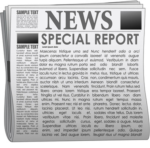Department News
 Check out what the Faculty and Students have been up to over the past year.
Check out what the Faculty and Students have been up to over the past year.
The trees don’t care about us (Charney)
May 30,2023 – The Atlantic, by Alexandra Horowitz
Two new books scrutinize the natural world, and not for what it might offer us.
Silent observers of our lives, trees are on most peoples’ radar only at moments of transition or death: We mark springtime’s budding and autumn’s flamboyance, note somberly the tree felled by a storm or by the tiny, ravenous ash borer. Although emblematic of nature, they nevertheless are seen with the goggles of our human-centered vision, and thus barely seen at all.
Bangor students see things from a salmon’s eye view (Dillingham)
May 2, 2023 – Maine Audubon, by Melissa Gallagher
Through recent outdoor learning and hands-on activities, students at the Fairmount School in Bangor are deepening their understanding of watersheds thanks to Maine Audubon’s “River in my Backyard” after-school program.
Downeast Audubon talk April 12 (Berigan/Filiberti)
Apr 3, 2023 – Ellsworth American
ELLSWORTH — Downeast Audubon is hosting a talk titled “Migratory Marvels: Understanding Woodcock and Golden-winged Warbler Migration” on Wednesday, April 12, at 7 p.m. at the Moore Community Center in Ellsworth.
Liam Berigan and Emily Filiberti are researchers at the University of Maine studying bird migration using remote tracking technology. Berigan will give an introduction to the biology and life history of the American woodcock and discuss his ongoing research on their migration patterns. Filiberti will speak about her two-year-long tracking and monitoring of the golden-winged warbler, a species facing acute population decline.
The audience will be walked through the process of tagging and tracking these elusive birds, how the Motus network is playing a pivotal role in understanding migratory pathways, and how this work will ultimately help to inform future management decisions for these species.
S8E4: How can art help enrich our lives and solve everyday problems? (Roth)
March 16, 2023 – The Maine Question Podcast
Art — whether it’s created on a page or computer or in a studio or theater — can do more than showcase creativity for amusement and cultural enrichment. Art can help teach people about historical and contemporary societies, advance research, support economic development and combat daily and systemic issues.
Amanda Ives: Teaching — and learning — with Maine Audubon
March 16, 2023 – UMaine News
Amanda Ives has always been outdoorsy. She remembers her childhood vacations and outdoor summer camp adventures as formative times in her life, and influential in her decision to pursue conservation as a career.
Secret Life of S’mammals (Yen)
Mar 3, 2023 – Georgia Wildlife Federation
A conversation between two small mammal researchers: Dr. JT Pynne (Georgia Wildlife Federation) and Ivy Yen (PhD Student at the University of Maine).
Most plants grow from seeds, but how do those seeds get there? Seed dispersal is the method by which plants spread out their seeds to populate an area. Seed dispersal comes in many forms, from hitchhikers riding along pants legs to birds eating and passing seeds.
Study traces migration habits of woodcock (Blomberg/Roth)
February 28, 2023 – The Piscataquis Observer
The American Woodcock, whether you hunt them over a gun dog or simply observe their spiraling spring mating rituals, are a fascinating and unique migratory game bird.
Reading Trees: Are small mammals able to predict seed densities in the Maine woods? (Franzoi Dri)
February 2023 – Maine TREE – Written by Gabriela Franzoi Dri
We all know that farmers try to predict if the coming season will produce a good crop based on spring weather. But have you ever wondered if squirrels can predict if this will be a good or poor acorn year? This is very intriguing because trees produce variable seed quantities each year – a process we call “mast-seeding” – and squirrels certainly would benefit from knowing when food will be more abundant.
Kaylee Hussey: Wiki-wonder
February 13, 2023 – UMaine News
Editor’s note: This story was updated Feb. 14, 2023
The assignment was simple: add information to the Wikipedia page of an invertebrate species, citing two peer-reviewed sources. Somehow, Kaylee Hussey misunderstood the task — and may have found a passion for science communication along the way.
A Fond Farewell to Amanda Ives, the 2022 Davis Intern at Fields Pond
December 20, 2022 – Maine Audubon
Imagine a job where you start your day by filling feeders for wild birds, then help to plan an after-school lesson for fourth graders, then recommend some hiking trails for visitors to the Fields Pond Audubon Nature Center.
New study shows trends of Lymphoproliferative disease among Maine wild turkeys (Blomberg/Gonnerman)
December 14, 2022 – UMaine News
The potentially lethal Lymphoproliferative virus (LPDV) is becoming more prevalent among wild turkeys in the Northeast. With wild turkey populations growing, the risk of disease transmission between them, their domesticated counterparts and chickens may increase.
A Fish That’s Swum in Maine Ponds Since The Ice Age Faces An Uncertain Future (Murphy)
December 12, 2022 – Maine Public
It’s a brisk late-October morning, with a bright sun breaking through the fog clinging to the surface of Floods Pond, in Otis.
What Birds Can Tell Us About Conservation (Njuguna)
December 07, 2022 – The Nature Conservancy
A TNC volunteer and a Kenyan student are applying a novel approach to measuring river health.
updated 2/21/2024
